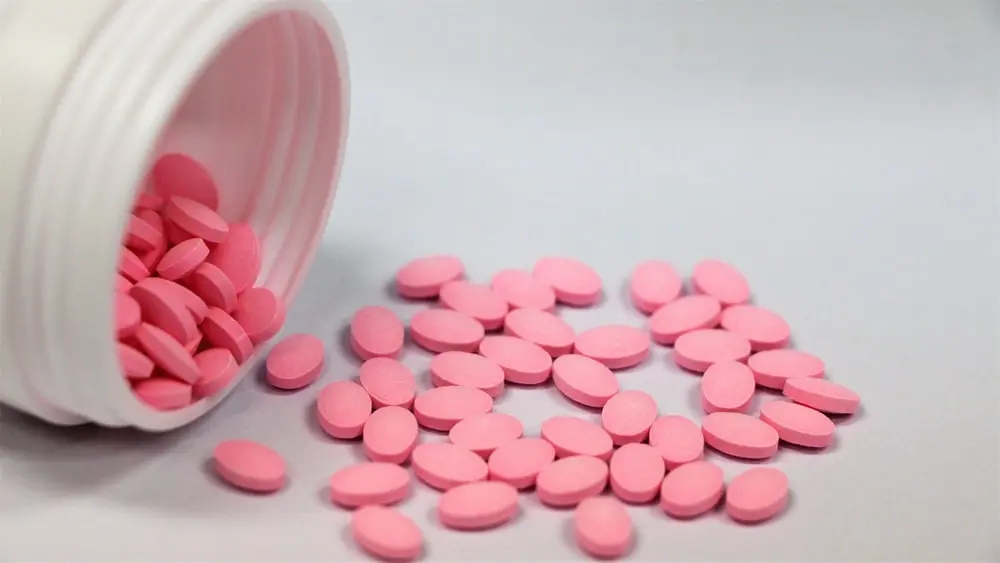Prescription Drug Abuse in Massachusetts

Deaths from overdoses are on the rise in Massachusetts. A major factor is prescription drug abuse. It’s a very complicated issue that’s wreaking havoc on the state’s health.
The theme of prescription drug abuse can be confusing. Sometimes they’re a legal and important part of a medical treatment plan. Sometimes, though, they are dangerous drugs that people abuse. Learn the details so you can stay on the healthy side of the crisis.
The Prescription Drug Crisis in Massachusetts
Prescription drugs are a big part of Massachusetts’ larger drug abuse problem. Consider these alarming statistics:
- In 2017, 38% of overdoses in Massachusetts involved prescription benzodiazepines.
- In 2017, 321 people died in Massachusetts from prescription opioid overdoses.
- 1 in 4 Massachusetts teenagers said they’d abused prescription drugs.
- 4 out of 5 heroin users in Massachusetts started with prescription pain pills.
When people abuse prescription drugs, they use them for reasons other than their medical purpose. This could mean they take more than the doctor gave them. It could also mean they don’t even have a prescription and take the drugs recreationally.
This is bad for their health. Plus, it can cause financial problems or trouble at work or school. It can cause problems in relationships with friends and family. The crisis of prescription drug abuse affects the entire community of Massachusetts.
What Prescription Drugs Are Abused in Massachusetts?
There are five main classes of drugs that people abuse in Massachusetts.
Opioids
Opioids are powerful painkillers. Doctors prescribe them after surgery or bad injuries.
These drugs are very powerful. That’s good if you need pain relief, but it also means they’re addictive. The body gets used to them quickly, so you have to take higher doses to get the same effects. If you stop taking the drug, you’ll feel withdrawals.
Opioids are also very dangerous. Along with relieving pain, they relax the body, including the heart and lungs. If you take too much, they can lead to a deadly overdose.
Opioids include common painkillers like oxycodone, hydrocodone and codeine.
Benzodiazepines
On the street, you may have heard these drugs called “benzos.” Doctors prescribe them to treat anxiety, insomnia and seizures. They calm you down and have a relaxing effect.
Benzos are getting more and more popular. Often people mix them with other drugs or alcohol. This is dangerous and increases the risk of overdose.
You may know the benzodiazepine brands Xanax, Valium and Ativan.
Barburituates
These days, barbiturates have mostly been replaced by benzodiazepines. Their effects are very similar. Still, they’re out there, and people sometimes try to get their hands on them for the relaxing high they induce. This is dangerous because there is no antidote for an overdose on these drugs. That could mean serious injury or even death.
Sleeping Pills
Sleeping pills are “z drugs” like Ambien and Lunesta. Sometimes people think they’re mild, so they don’t worry about addiction. Yet, these drugs can cause physical dependence. If you take too many too often, you might have problems quitting.
Stimulants
Doctors usually use stimulants to treat disorders like ADHD. They’re drugs like Adderall and Ritalin. They give you energy and help you focus. For this reason, people abuse them for things like studying or sports. Taking too much, though, can lead to overdose.
Signs and Symptoms of Prescription Drug Abuse
Since prescription drugs are often given by a doctor, it can be hard to know if you or a loved one is abusing them. The following signs might suggest someone is abusing a prescription drug beyond its intended health-care purpose if they
- Use the drug when they don’t need to.
- Fake symptoms to get drugs.
- Visit different doctors to get the same prescription multiple times.
- Steal prescription medications from others.
- Have problems at work or school that can’t be explained.
- Don’t follow treatment plans unless they involve drugs.
- Use more of the drug than the doctor prescribed.
Get Treatment for Prescription Drug Abuse in Massachusetts
If you or someone you care about is showing signs of abusing prescription medications, it may be time for drug addiction help. Our trained professionals can help assess the situation and decide on a treatment plan.
Prescription drugs are dangerous by themselves. Not only that, but they can lead to even more dangerous illegal drugs. That’s why it’s best to get help as soon as possible. Call Springhill Recovery Center today to learn about your treatment options.
- Massachusetts: Opioid-Involved Deaths and Related Harms https://www.drugabuse.gov/drug-topics/opioids/opioid-summaries-by-state/massachusetts-opioid-involved-deaths-related-harms
- Overdose deaths down nationally, but spike in Massachusetts https://www.lowellsun.com/2020/01/31/overdose-deaths-down-nationally-but-spike-in-massachusetts/
- Key facts about opioids https://www.mass.gov/service-details/key-facts-about-opioids


